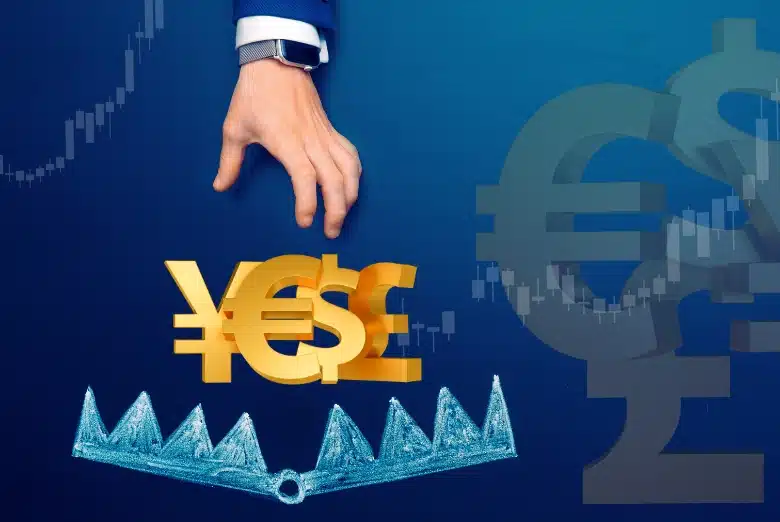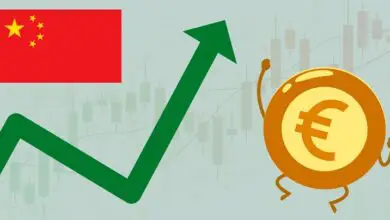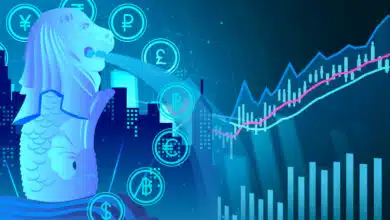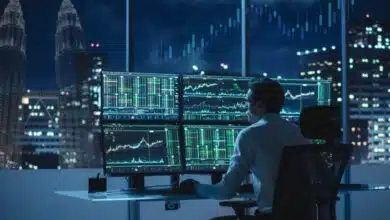Avoiding forex trading scams in the Philippines: Red flags to look out for

The Philippines is still working towards becoming one of the top countries where foreign currencies are trading popularly, like stocks and commodities. Although opportunities for forex trading are relatively few, the Philippines is home to the world’s most brilliant investors and traders. Trading foreign currencies in the Philippines is popular among the Philippines traders who are looking for easier ways to earn profits in the short term.
Using top forex brokers in the Philippines authorized by the Securities and Exchange Commission (SEC) to ensure security while trading forex. With the rising popularity of Philippines forex trading, there have been a lot of scams and fraud cases leading to theft and, ultimately, substantial money losses. Hence, learning to avoid forex trading scams is essential by looking for red flags in forex broker platforms. This article will exclusively discuss protecting oneself from forex trading scams using a few essential tips.
What is Forex Trading?
Forex or foreign exchange is the transactional process of changing one currency to another for various reasons like tourism, international trade, and commerce. Forex trading is conducted on the OTC (over-the-counter) market, which is open for buying and selling currencies, 24 hours a day, five days a week. The Forex market is the world’s most liquid and largest financial market, with an average daily turnover of over $6.5 trillion.
Forex trading involves making profits from fluctuations in currency prices. Trades are based on a currency pair or exchange rate, which applies a base currency and a quote currency. For instance, the currency pair EUR/USD involves buying the base currency, EUR (European euro), and selling the quoted currency, USD (US dollars). It shows the amount of USD that can be bought with one EUR.
Forex trading in the Philippines has become extremely popular, with strict regulations being applied to top forex brokers. Forex trading on local brokerage accounts was made illegal in the Philippines due to many fake financial platforms and forex scams that cost thousands of Philippine traders tons of money. However, many ways were introduced to safely overcome the legal barrier and trade forex with advanced security measures and strict regulations under leading authorities. Since local forex brokers were banned, traders had to resort to international platforms to trade in foreign currencies.
Common Forex Trading Scams in the Philippines
Ponzi Schemes
The Ponzi scheme is a shared trading scam involving payments of unusually high returns to current traders from the funds contributed by newly registered investors. The organizers of this scheme often solicit new traders by promising to trade and invest in opportunities that claim to generate massive returns with minimal risk. In the Philippines, the popular Ponzi scam called the Kapa Investment scam was one of the most significant investment fraud scandals in the history of the Philippines. Around 5 million investors were duped by Kapa-Community Ministry International, which promised a monthly return of 30% on investments for life.
Signal Sellers
In the modern day, forex trading scam takes the form of signal sellers that include retail firms, managed account companies, pooled asset managers, and individual traders, offering a system with daily/weekly/monthly fee, claiming to identify the best opportunities to buy and sell currency pairs based on professional recommendations that make traders wealthy. Most signal sellers scammers collect money from traders and then disappear. This form of forex trading scam is gradually becoming a broader issue in the Philippines. Hence, it is unwise to depend on information gathered from unknown entities whose past performance is strange.
Fake Brokers
Fake brokers are probably the worst kind of scams that traders come across. These unregulated forex platforms use bogus profiles and contact information to ensure traders cannot locate them. Many forex brokers in the Philippines are dishonest and unreliable, finding ways to take away hard-earned money from Philippines traders. These fake brokers or scammers ask for personal and financial details, provide false information, and charge unnecessarily high fees from their clients. The best thing that traders can do is conduct background checks on the top forex brokers in the Philippines before handing over their money to forex brokers.
Forex Robots
Forex robots are a persistent scam that has been in the market for ages, where scammers tout the ability of their systems to generate automatic forex trades and earn vast revenue from it. Most of these forex robots do not submit a formal review and are not tested by any independent source. Individuals and companies offering forex robots often make a living by making unrealistic promises to novice traders using fake testimonials and reviews, clever wording, and high-pressure tactics to convince traders that forex robots guarantee positive returns. The traders ultimately pay for the counterfeit robots and lose tons of money by making trades depending on trades suggested by forex software.
Red Flags to Look Out For
Promises of High Returns with Little or No Risk
All forms of trading have risk, and traders must always question if they witness any promise of a guaranteed return. They must beware of all forex brokers who promise they will provide high rates of return on investments, especially with little or no risk. Forex brokers that make claims like “zero risk,” “risk-free,” “guaranteed profit,” and “absolutely safe” are the first red flags to look for since they are the hallmarks of scams.
Pressure to Invest Quickly or Urgently
Another warning sign of forex trading fraud is that unreliable forex brokers may create pressure or a false sense of urgency to get things done quickly. They pressured the traders to place their trades instantly without giving them time to research the best opportunity before handing money to the brokers.
Lack of Transparency in Trading Strategies or Investment Opportunities
Professional investors make money consistently over some time and not daily. Forex brokers that provide unsolicited sales pitches may be part of a fraud investments scheme. Lack of transparency, added with unsolicited information about any investment opportunity or trading strategy, should be considered a red flag and must be avoided at all costs. Additionally, suppose any forex broker cannot explain their procedure adequately and seems to make up one out of thin air. In that case, it must be avoided since professional traders hone their craft and know the ins and outs of forex trading strategies and opportunities well.
Unsolicited Phone Calls or Emails from Brokers or Traders
Traders often do not know that they are dealing with forex scams when they are approached aggressively in the most unsolicited manner. The first pressure call may come as a phone call, letter, email, or even a vague contact on social media platforms. They may also be offered seminars, super-high investment returns, and unsolicited gifts.
Unregistered or Unlicensed Brokers or Trading Companies
Many forex trading frauds involve unregistered or unlicensed brokers and trading companies. Traders must look out for this red flag and check the registration and license status on the official website of the broker platform. Avoiding shady media that create more dilemmas than answering basic queries.
How to Protect Yourself from Forex Trading Scams
Do Your Research and Due Diligence
Before entering the world of forex trading, traders must know the basics and clearly understand how forex works. Participating in forex without any prior knowledge is mere gambling. It is wise to avoid forex brokers offering lucrative returns and promising automatic profits quickly. Carry out proper research and check out the features and functions mentioned on the official website before registering.
Check for Regulatory Compliance and Licensing
Top forex brokers in the Philippines that are authorized and regulated by at least one financial regulatory body ensure the protection of client information, funds, and interests. In addition, registered brokers are also responsible and are held accountable in case of misconduct.
Be Wary of Unsolicited Offers or Promises
There is no easy way of earning money from forex trading. All traders need to spend considerable effort and time. Hence, if any broker guarantees a positive return within a month, avoid them altogether. Unsolicited offers and promises are not to be believed, even if it sounds alluring. Avoid claims that appear too good to be accurate and go for real opportunities.
Use Reputable Trading Platforms and Brokers
Use reputable forex trading brokers and platforms offering complete transparency regarding fee structure, licenses, and other essential features and procedures clearly outlined on the official webpage.
Be Cautious of High-Pressure Sales Tactics
Traders must avoid platforms that provide unsolicited information about the platform, forcing customers to join and make deposits immediately. Professional forex brokers do not need to trick customers into something they do not want to do.
Trust Your Instincts and Intuition
Lastly, the ultimate decision to join a forex trading platform lies with the traders. Regardless of all the red and white flags, individual traders need to take time out to research the best investment opportunities before handing over the money to the brokerage. Hence, a part of this research also involves trusting your instincts and intuition while choosing the best forex trading platform to trade.
Conclusion
Successful forex trading is not only about implementing excellent trading strategies but also being wary of trading scams which can happen to anyone regardless of the experience one has. Trading with complete peace of mind and confidence with a forex broker is essential since forex trading involves enormous amounts of money. Review the top forex brokers in the Philippines and conduct background checks before opening an account. The alluring and temptation of massive profits will only invite more sophisticated scammers to the market. Hence, the sole responsibility lies with the traders to avoid such forex scams.



